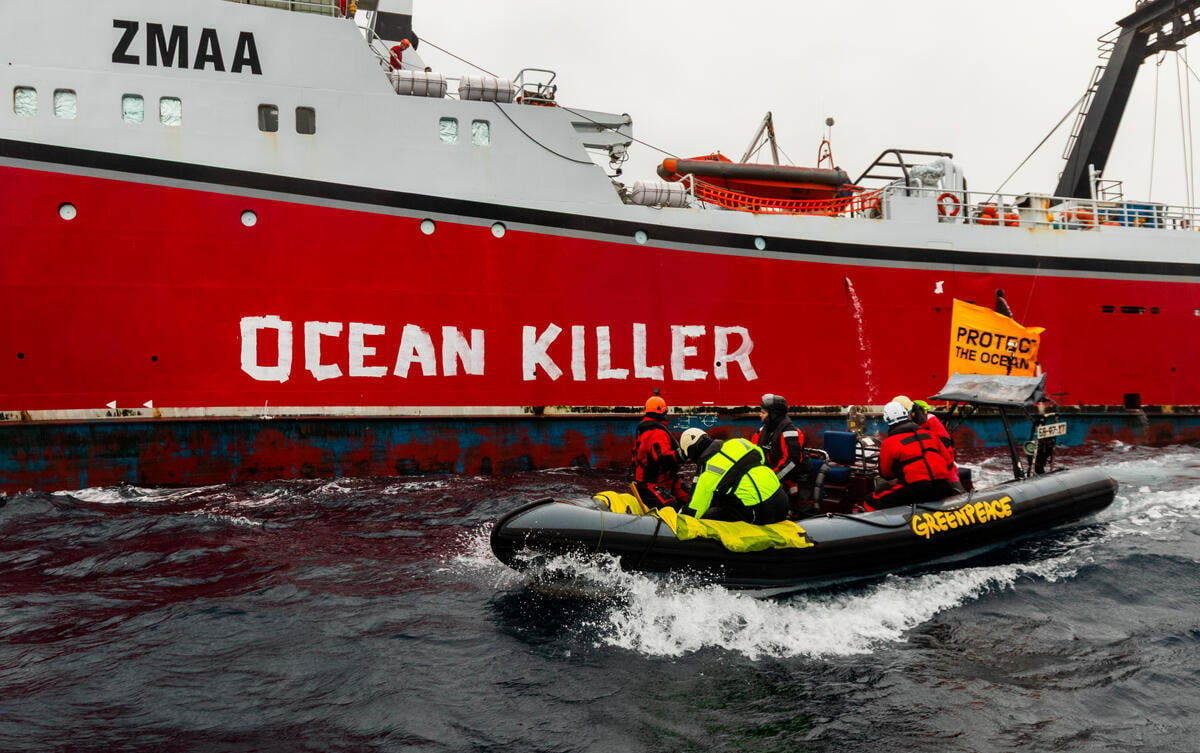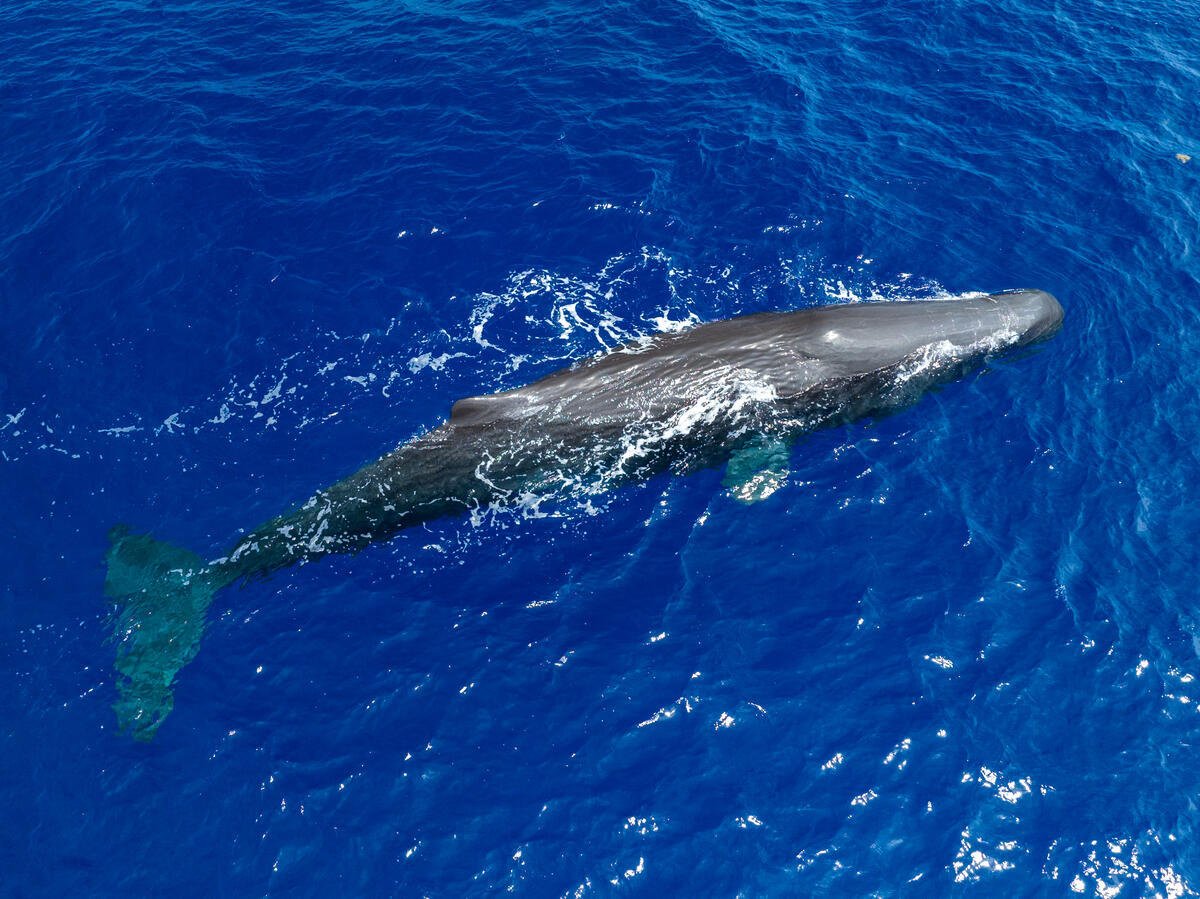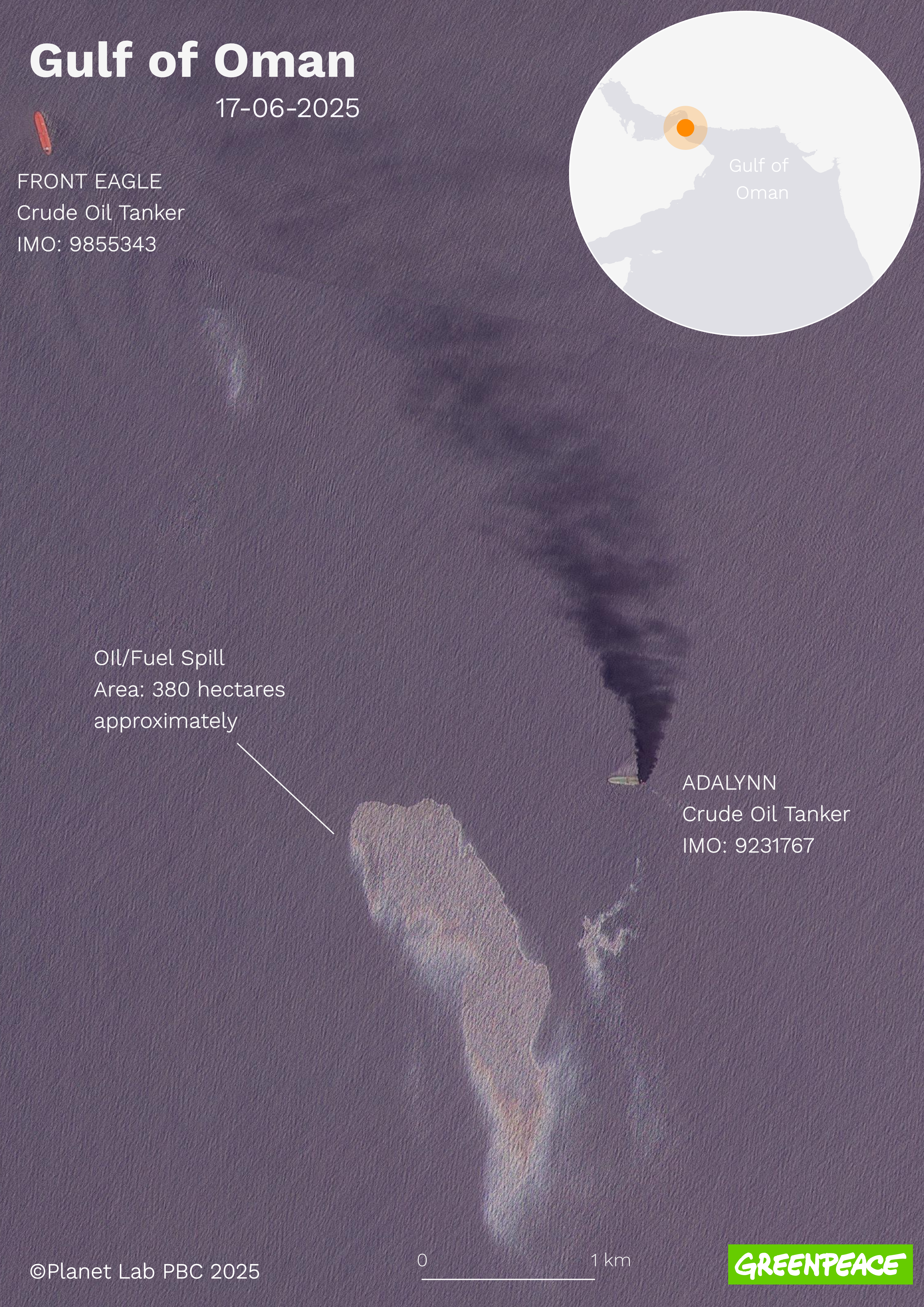Kingston, Jamaica – Governments gather to debate deep sea mining amid growing public resistance, as the 29th session of the International Seabed Authority (ISA) starts today in Kingston, Jamaica. The meeting is a critical moment for the future of the oceans as deep sea mining companies are pressing governments to agree on a mining code that would legitimise this destructive practice.
The ISA Council has also included Greenpeace International’s 200-hour peaceful protest against industry frontrunner The Metals Company in its Provisional Agenda, expected to be discussed on Friday. This comes after ISA Secretary-General Michael Lodge argued that Greenpeace International’s kayaks paddling around the industry’s vessel posed a “threat of serious harm to the marine environment”. Lodge has been previously criticised by governments for trying to accelerate the start of deep sea mining and for banning media from chambers.
“If Michael Lodge had put as much effort into properly scrutinising deep sea mining companies and ensuring transparent negotiations as he has chasing dissent, a pristine ecosystem would have a fair chance to remain undisturbed. How can Greenpeace’s activists paddling on kayaks be a threat to the environment, but the plundering of the oceans be a solution to the climate catastrophe?”, said Louisa Casson, Stop Deep Sea Mining campaign Lead, Greenpeace International.
Greenpeace International will host a side event at the ISA on the right to protest at 6 pm local time today, featuring comments from the United Nations Special Rapporteur on toxics and human rights and the Special Rapporteur on Environmental Defenders under the Aarhus Convention.
As part of ongoing attempts by industry and a handful of governments to rush the adoption of regulations, the ISA released a 225-page “consolidated text” of the draft mining regulations as the basis for negotiations in this meeting. However, several industry proposals have been incorporated into the text without the agreement of governments or clear attribution, including efforts to weaken conservation language and speed up the start of mining.[1]
A year ago, only a handful of governments were calling for a moratorium and the deep sea mining industry was certain it would get the greenlight to start mining in 2024. But their bet backfired as the call for a moratorium has grown exponentially among governments, with 24 nations now arguing we need to listen to science and safeguard our oceans.
“Over the past year, it’s been outstanding to see the growing call for a moratorium from countries in the Pacific, Europe and Latin America. Responsible nations at the ISA are listening to the mounting science that shows deep sea mining would cause irreversible damage to the oceans. The Metals Company and startups like it, don’t have the time or the interest, for a serious and transparent debate. The momentum is on the side of a moratorium”, said Casson.
A global movement of over 2 million people is calling on governments to make history by voting for a moratorium on deep sea mining. Discussions on this will take place in July at the ISA Assembly made up of 167 States plus the European Union.
ENDS
Photos of Greenpeace International action can be accessed via the Greenpeace Media Library.
Notes:
[1] There is verbatim inclusion of proposals by NORI/TOML/BMJ (Nauru Ocean Resources Inc., Tonga Offshore Mining Ltd. – both subsidiaries of The Metals Company – and Blue Minerals Jamaica Ltd.), sometimes in direct opposition to States, sometimes not marked up at all as “new text”, which raises the alarm over the extent of industry influence.
Examples include:
- Draft Regulation (DR) 44 general obligations relating to the Marine environment: This DR is about implementing and updating measures necessary for ensuring effective protection of the Marine Environment. It was previously specified that such measures must apply to “rare or fragile ecosystems as well as the habitat of depleted, threatened or endangered species” AND that such measures extend not only to direct harmful effects but also indirect harmful effects. NORI/TOML/BMJ suggested deleting the important specification of “rare or fragile ecosystems and habitat of depleted, threatened or endangered species” and also the reference to indirect harmful effects. Words like “rare or fragile etc” have been totally removed, with no trace or track changes, DESPITE the fact this was marked as accepted text by governments (no brackets) in the previous facilitators’ text. Terminology like “directly or indirectly” have also been bracketed as a point for discussion based on the above contractor comments, which also had not been openly opposed by the Council and was previously without brackets.
- DR12, concerning the timeline for the consideration of an application by the Commission, currently reads that this process shall begin at the Commission’s next meeting. NORI/TOML/BMJ suggested in writing after 11 December that it should be accelerated to “within 30 Days of its receipt of the application”. This suggestion is included in the consolidated text, despite the fact that, according to the President’s briefing note, proposals received after the last ISA Council meeting in November should have not been included in the consolidated text.”
Contacts:
Sol Gosetti, Global Media Coordinator for the Stop Deep Sea Mining campaign, Greenpeace International: [email protected], WhatsApp +44 (0) 7380845754
Greenpeace International Press Desk, +31 (0)20 718 2470 (available 24 hours), [email protected]
Follow @greenpeacepress on X/Twitter for our latest international press releases.



